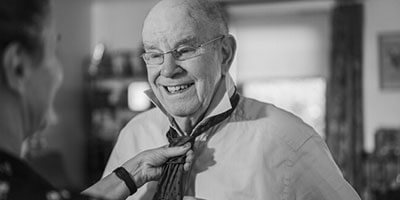Welcome to The Inclusivity Project: Diversity enriches business
The Inclusivity Project, funded with support from European Regional Development Fund and the SW Academic Health Science Network, was a partnership between the University of Exeter, Age UK Cornwall and the Isles of Scilly, Disability Cornwall and the Cornwall and Isles of Scilly Local Enterprise Partnership.
The Inclusivity Project worked with and researched small, medium and micro enterprises in Cornwall and the Isles of Scilly to generate a better understanding of some of the challenges and opportunities that employers had towards creating inclusive places to work for people who are 50+, who were disabled, and/or had a long-term health condition.
Our research and support through our Knowledge Exchange service has empowered SMEs to overcome the challenges and barriers they have faced in their aim to be, and support a more inclusive workplace, both pre and post pandemic.
Our research

Unconscious bias and inclusive recruitment
Our research used the Implicit Association Test to look at unconscious bias towards disabled people and older people in the business community. We were particularly interested to examine levels of unconscious bias by people making hiring decisions, and any differences between smaller and larger companies.

Policy and the system
We used a system mapping approach to identify and connect factors that help or hinder older and disabled people from having a job. We found the employment system, as a social system, combined with the geography of Cornwall, creates reinforcing negative employment practices among many SMEs which act as hurdles for their employment.

Hybrid working and resilience
The Covid-19 pandemic has changed the way we view work, modern offices and ourselves as a workforce. SMEs and frontline organisations may not have the time and resource to focus systematically on this transition in work culture. We explored the key issues of implementing hybrid working in a frontline SME.
Promoting workplace inclusivity through research and funding
Workplace inclusivity means having a diverse range of staff, maximising their potential and looking after their different wellbeing needs.
At The Inclusivity Project, we wanted to help small to medium-sized Cornish businesses gain the value of workers of different ages, abilities, and health conditions. We did this in two ways:
- By doing research, led by the University of Exeter.
- By funding ideas from local businesses.
We put these two perspectives together with the voices from our partner organisations’ lived experience.
Research that supports SMEs in Cornwall and beyond
It was shown that big corporations profit when they create inclusivity. It was time to hear the small business perspective in our region.
Cornwall had more older people than ever before. And they wanted to work. Disabled people, and people with long-term health conditions, also wanted to work – and keep working, despite Coronavirus forcing them take extra care.
The Inclusivity Project had been researching how employers like you would adapt. Could the remodelling of your work life with Covid-19 be a chance to remake your approach to people with better diversity?
It was our aim to use the evidence base of the previous 3 years to provide practical tools to help you grow your company’s approach to people.
Find out how to implement hybrid working in your business here >
Find out about unconscious bias and take the bias test here >
